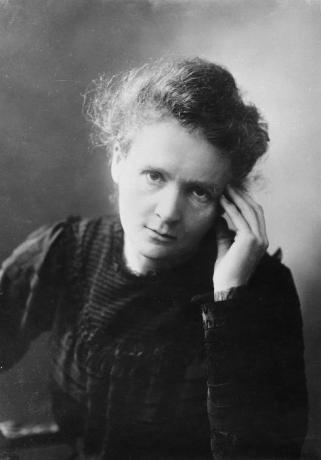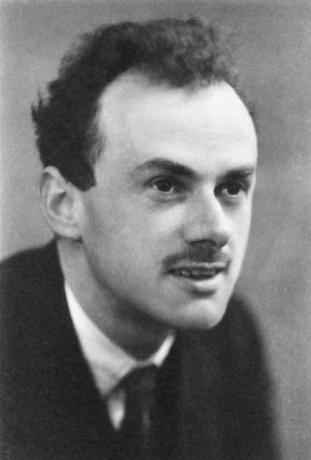He knows some of those who are considered the most important physicists for the development of Science and what his main contributions were.
GalileoGalilei: Galileo (1564-1642) lived in Italy and was known for studying the movement of bodies. In the year 1630, Galileo proved that bodies of different masses fell towards the Earth with the same acceleration.
IsaacNewton: Newton (1643-1727) was the English physicist responsible for establishing three universal laws of motion, as well as the law of universal gravitation. He revolutionized the understanding of the Universe from his equations.
MichaelFaraday: Faraday (1791-1867) was known for his studies of electromagnetism. In the year 1831, Faraday discovered the phenomenon of electromagnetic induction.
JamesClerkMaxwell: Maxwell (1831-1879) produced a theory about electromagnetism, this theory stated that light is produced by electric and magnetic fields, and behaves like a wave.
WilhelmRontgen: Röntgen (1845-1923) was the first physicist in history to produce and detect X-rays.
MarieCurie: She was the only scientist in history to be awarded the Nobel Prize in Physics and Chemistry. Marie Curie contributed to the study of radiation by creating methods used to separate radioactive isotopes, in addition to having discovered, together with her husband, the elements radium and polonium.

Marie Curie was one of the greatest scientists in history, her contributions allowed a better understanding of radioactivity.
J.J. Thomson: Thomson (1856-1940) discovered the existence of the first subatomic particle: the electron.
MaxPlanck: The German physicist Max Planck (1858-947) proposed that the radiation emitted by black bodies be quantized, that is, formed by small packets of energy. His interpretation of radiation is considered to kick-start the study of quantum mechanics.
AlbertEinstein: Albert Einstein (1879-1955) was a German physicist responsible for explaining the photoelectric effect, by creation of special and general theories of relativity, as well as the establishment of the relationship between mass and energy.
Lookalso:Understand the relationship between Einstein and the atomic bomb
ErnestRutherford: Rutherford (1871-1937) discovered the existence of the atomic nucleus in 1911, in 1920 he discovered the existence of protons.
NeilsBohr: Niels Bohr (1885-1962) was one of those responsible for developing the theory that explains the structure of atoms. His atomic model and his contributions were of great importance for the advancement of quantum mechanics.
WolfgangPauli: Pauli (1900-1958) made contributions to quantum theory, in particular to the study of spin. In 1931, Pauli discovered the existence of neutrinos. His greatest contribution to physics, however, was only published in 1952: the exclusion principle, fundamental for understanding the energy levels of atoms and electrons.
ErwinSchrodinger: Schröedinger (1887-1961) developed the equation that predicts the evolution of quantum systems, one of the most important equations in quantum mechanics.
PaulDirac: Paul Dirac (1902-1984) predicted, by means of calculations, the existence of particles whose electrical charge showed signs contrary to those of ordinary matter. These particles came to be called antimatter.

Dirac discovered the existence of antimatter.
WernerHeisenberg: Heisenberg (1901-1976) was known for his discovery: the uncertainty principle. This principle showed that there are natural limitations to measurements made with quantum particles.
EnricoFermi: Fermi (1901-1954) was one of the physicists active in the creation of the first nuclear reactor, developed by the Manhattan Project, responsible for the creation of the first nuclear warhead. Fermi was responsible for major contributions to the field of quantum mechanics and the study of particle physics.
RobertOppenheimer: Oppenheimer (1918-1988) was director of one of the Manhattan Project's most important laboratories. He studied the process of obtaining enriched uranium, as well as developed approaches that allowed the resolution of hitherto unsolvable equations, leveraging the development of areas such as quantum mechanics and state physics solid.
Richardfeynman: Feynman (1918-1988) was one of those responsible for the development of quantum electrodynamics, a theory that describes the influence of electric and magnetic fields on quantum particles. Feynman received the Nobel Prize in Physics in the year 1965, along with Julian Schwinger and Sin-Itiro Tomonaga.
Stephenhawking: Hawking (1942-2018) was a leading British physicist who developed theories about the origin and development of the Universe, as well as the dynamics of black holes. Hawking suffered from a rare genetic and degenerative condition responsible for atrophying his muscles.
Lookalso:what is physics?
Current famous physicists
Meet the biggest names in contemporary physics, who are alive today and whose contributions are still considered recent.
Timothy Berners-Lee: Tim Berners Lee, is a British physicist, computer scientist and professor at MIT. In 1990, with the help of Robert Callilau, he developed what we know today as the world wide web, starting the entire world wide web.
Alan Guth: Alan Guth is an American physicist and cosmologist. Alan is considered the father of inflationary theory. According to this theory, the Universe would have expanded exponentially, at speeds possibly higher than that of light itself, during the first moments of its existence. His theory came about as an attempt to solve some of the problems encountered in big bang theory.
Ashoke Sen: Ashoke Sen is an Indian theoretical physicist, a member of the Royal Society since 1998, after being nominated by Stephen Hawking. Ashoke Sen has made great contributions to the advancement of string theory.
Peter Higgs: Peter Higgs is a British theoretical physicist who won the Nobel Prize in Physics in 2013 along with François Englert for discovering the potential of the Higgs. According to his discovery, there is a boson that gives mass to other particles. The Higgs bosons were observed in 2012 by the European Center for Nuclear Reactions (CERN).
See too: Do you know what modern physics is?
Brazilian Physicists
He meets some of the most important Brazilian physicists and finds out what his contributions were to the development of Physics.
CaesarLattes: Cesar Lattes (1924-2005) was one of the discoverers of the subatomic particle known as the pi-meson. His discovery was instrumental in confirming Einstein's theory of relativity. Cesar Lattes was also one of those responsible for creating the National Council for Scientific and Technological Development (CNPq).

Cesar Lattes was one of the most important Brazilian physicists.
Constantino Tsallis: Tsallis is a Greek-Brazilian physicist and is currently a professor at the Brazilian Center for Physics Research (CBPF), his main contribution concerns a generalization of the Boltzmann-Gibs statistic, related to the calculation of entropy.
Mario Schenberg: Mario Schenberg is considered one of the greatest theoretical physicists in Brazil, his diverse contributions covered different areas of Physics, in addition, Schenberg has had several collaborations with world-renowned physicists such as George Gamow and Subrahmanyan Chandrasekar.
great physicists of antiquity
Anaximander: Anaximander was an important Greek philosopher who was concerned with understanding the functioning of the Universe and its origin. His greatest achievements were related to Astronomy. Anaximander developed methods to measure the distance between stars, in addition, several statements made by the philosopher are experimentally observed nowadays.
Archimedes: Archimedes was, among other things, a great scientist and inventor. Archimedes discovered the law of thrust and the application of levers.
Aristarchus: Aristarchus was the first philosopher to claim that the Earth moved around the Sun. In addition, it developed a method capable of measuring the relative distance between the Earth and the Sun, based on the distance between the Earth and the Lua, his results, however, were erroneous, due to the precariousness of the instruments used at the time for the measurement of angles.
Democritus and Leucipus: Democritus was a disciple and successor of Leucippus. The fame of these philosophers stems from atomism: a strand of thought that claimed that everything that exists is formed by tiny and indivisible parts, called atoms.
Several physicists were important to the development of Science, their contributions shaped our society, thanks to the emergence of new methods and technologies arising from the principles that were discovered by these researchers, so it is important to study and understand what is the role of Physics for the humanity.
By Me. Rafael Helerbrock.
Source: Brazil School - https://brasilescola.uol.com.br/fisica/construtores-fisica.htm

